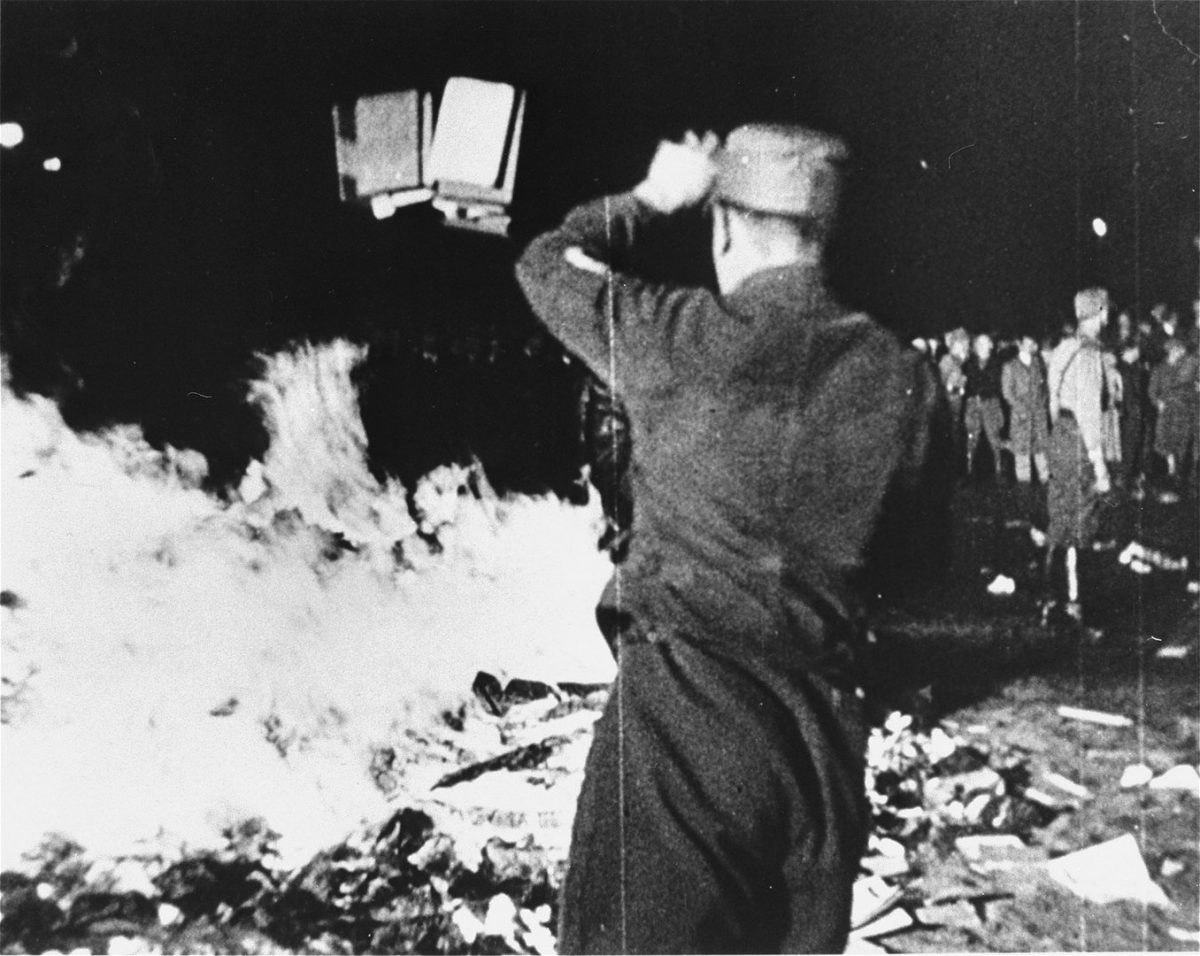“Those who burn books will in the end burn people.”
Edna Friedberg, a historian at the United States Holocaust Memorial Museum in Washington, D.C., opened the April 6 online discussion, “Fires of Hate: How the Nazis Targeted Books and Free Thinking,” with an ominous quote from Heinrich Heine. Heine wrote the line in 1821 for a play about the Spanish Inquisition, but it’s become more and more relevant in the 200 years since it was penned, Friedberg said.
“When Heinrich Heine wrote those words … he could not have known a century later that Nazis would burn his books or that they would go on to murder 6 million Jewish people and other individuals throughout Europe,” she said.
Friedberg was joined by Deborah Caldwell-Stone, director of the American Library Association’s Office for Intellectual Freedom, and Lindsey MacNeill, a historian at the United States Holocaust Memorial Museum, for the discussion on Nazi book burning and its contemporary parallels. But it’s not a new phenomenon, Caldwell said.
“We’ve had book burnings from the very beginning, ever since ink was placed on paper or when printing presses began to produce books,” she said.
Watch the talk in its entirety here:
Photo: A member of the SA throws confiscated books into the bonfire during the public burning of “un-German” books on the Opernplatz in Berlin in 1933.




